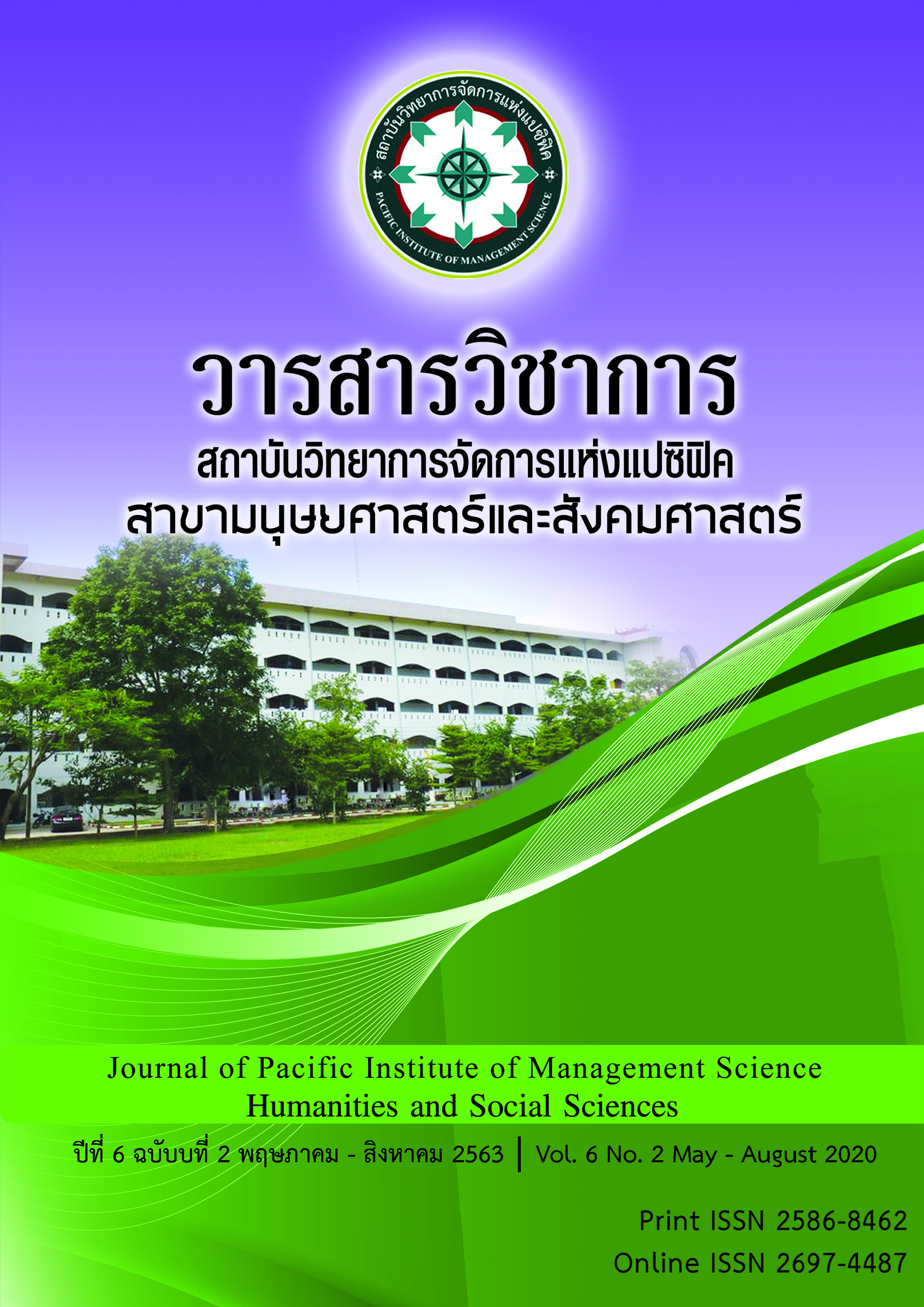Legal Issues in Protecting Officers in Disguise Operations under the Drugs Procedure Act 2007
Keywords:
Officials in convert operation, Protection of officials in drug caseAbstract
The Research is aimed at studying concept and theory in relation to protection of the officials carrying out covert operation under Drug Case Procedure Act B.E. 2550 (2007) and a comparative study between principles of Thai laws and principle of foreign countries’ laws in relation to protection of the officials carrying out the covert operation in order to analyze problems of protection of the officials carrying out covert operation under Drug Case Procedure Act B.E. 2550 (2007) and find relevant solution for more efficient protection in place. The study finds that provisions of Drug Case Procedure Act B.E. 2550 (2007) do not cover protection of the officials against allegations of drug possession, drug addiction, drug-related joint offending and joint offending in other offenses that are possibly arisen by and during the time of the officials’ covert operation. Laws of foreign countries i.e. United States, Federal Republic of Germany and Republic of Italy are found different since their provisions definitely recognize those offendable acts to protect the officials and provide conditions of asking for permission for balancing the officials’ use of power to prevent unlawful abuse of power.
References
เกียรติขจร วัจนะสวัสดิ์. (2560). คำอธิบายกฎหมายอาญา ภาค 1. (พิมพ์ครั้งที่ 11, แก้ไขเพิ่มเติม). กรุงเทพฯ : โรงพิมพ์มหาวิทยาลัยธรรมศาสตร์.
คณิต ณ นคร. (2560). กฎหมายอาญา ภาคทั่วไป. (พิมพ์ครั้งที่ 6). กรุงเทพฯ:วิญญูชน.
จิตติ ติงศภัทิย์. (2555). กฎหมายอาญา ภาค 1. (พิมพ์ครั้งที่ 11). กรุงเทพฯ : สำนักอบรมศึกษากฎหมายแห่งเนติบัณฑิตยสภา.
ทวีเกียรติ มีนะกนิษฐ์. (2549). กฎหมายอาญา หลักและปัญหา. (พิมพ์ครั้งที่ 7). กรุงเทพฯ : สำนักพิมพ์มหาวิทยาลัยธรรมศาสตร์.
นวลจันทร์ ทัศนชัยกุล. (2542). อาชญากรรม (การป้องกัน:การควบคุม). กรุงเทพมหานคร: มหาวิทยาลัย เกษตรศาสตร์.
ปุระชัย เปี่ยมสมบูรณ์. (2551). อาชญากรรมพื้นฐานกับกระบวนการยุติธรรม. กรุงเทพมหานคร: สำนักพิมพ์จุฬาลงกรณ์มหาวิทยาลัย.
วรพจน์ วิศรุตพิชญ์. (2543). สิทธิและเสรีภาพตามรัฐธรรมนูญแห่งราชอาณาจักไทยพุทธศักราช 2540. (พิมพ์ครั้งที่ 2). กรุงเทพมหานคร: วิญญูชน.
ศรีเสนา และคิด คชาชีวะ. (2459). วิธีสืบสวนโจรผู้ร้าย เล่ม 1. กรุงเทพมหานคร: โรงพิมพ์โสภณพิพัฒธนาการ.
หยุด แสงอุทัย. (2556). กฎหมายอาญา ภาคทั่วไป. (พิมพ์ครั้งที่ 21). กรุงเทพฯ : โรงพิมพ์มหาวิทยาลัย ธรรมศาสตร์.
อรรณพ ลิขิตจิตถะ และคณะ. (2548). เทคนิคการสืบสวนสอบสวนพิเศษ. กรุงเทพมหานคร : สำนักงานกองทุนสนับสนุนการวิจัย.
อุทัย อาทิเวช. (2558). ทฤษฎีอาชญาวิทยากับกระบวนการยุติธรรมทางอาญา. กรุงเทพฯ: ห้างหุ้นส่วนจำกัด วี.เจ.พริ้นติ้ง.
Amy Chang Lee. (2007). The United States' Experience in the Investigation and Prosecution of Transnational Organized Crime. Resource Material Series No. 73. Tokyo: UNAFEI.
Attorney General’s Guidelines on Federal Bureau of Investigation Undercover Operations (Online). available URL : https://www.justice.gov/sites/default/files/ag/legacy/2013/09/24/ undercover-fbi-operations.pdf. [2018, 17 August]
E. E. Joh. (2002). Breaking the Law to Enforce It: Undercover Police Participation in Crime. Stanford Law. Federal Bureau of Investigation (FBI). IV. Authorization of undercover operation, the attorney general’s Guidelines on Federal Bureau of Investigation undercover operation.
H. G. Nilsson. Special Investigation Techniques and Developments in Mutual Legal Assistance – the Crossroads between Police Cooperation and Judicial Cooperation. Resource Material Series No.65.
THE GERMAN CODE OF CRIMINAL PROCEDURE (Strafprozessordnung / StPO) (Online). available URL: https://www.gesetze-im-internet.de/englisch_stpo/index.html. [2018, 17 August]
Downloads
Published
Issue
Section
License
บทความที่ได้รับการตีพิมพ์เป็นลิขสิทธิ์ของ สถาบันวิทยาการจัดการแห่งแปซิฟิค
ข้อความที่ปรากฏในบทความแต่ละเรื่องในวารสารวิชาการเล่มนี้เป็นความคิดเห็นส่วนตัวของผู้เขียนแต่ละท่านไม่เกี่ยวข้องกับสถาบันวิทยาการจัดการแห่งแปซิฟิค และคณาจารย์ท่านอื่นๆในสถาบันฯ แต่อย่างใด ความรับผิดชอบองค์ประกอบทั้งหมดของบทความแต่ละเรื่องเป็นของผู้เขียนแต่ละท่าน หากมีความผิดพลาดใดๆ ผู้เขียนแต่ละท่านจะรับผิดชอบบทความของตนเองแต่ผู้เดียว







